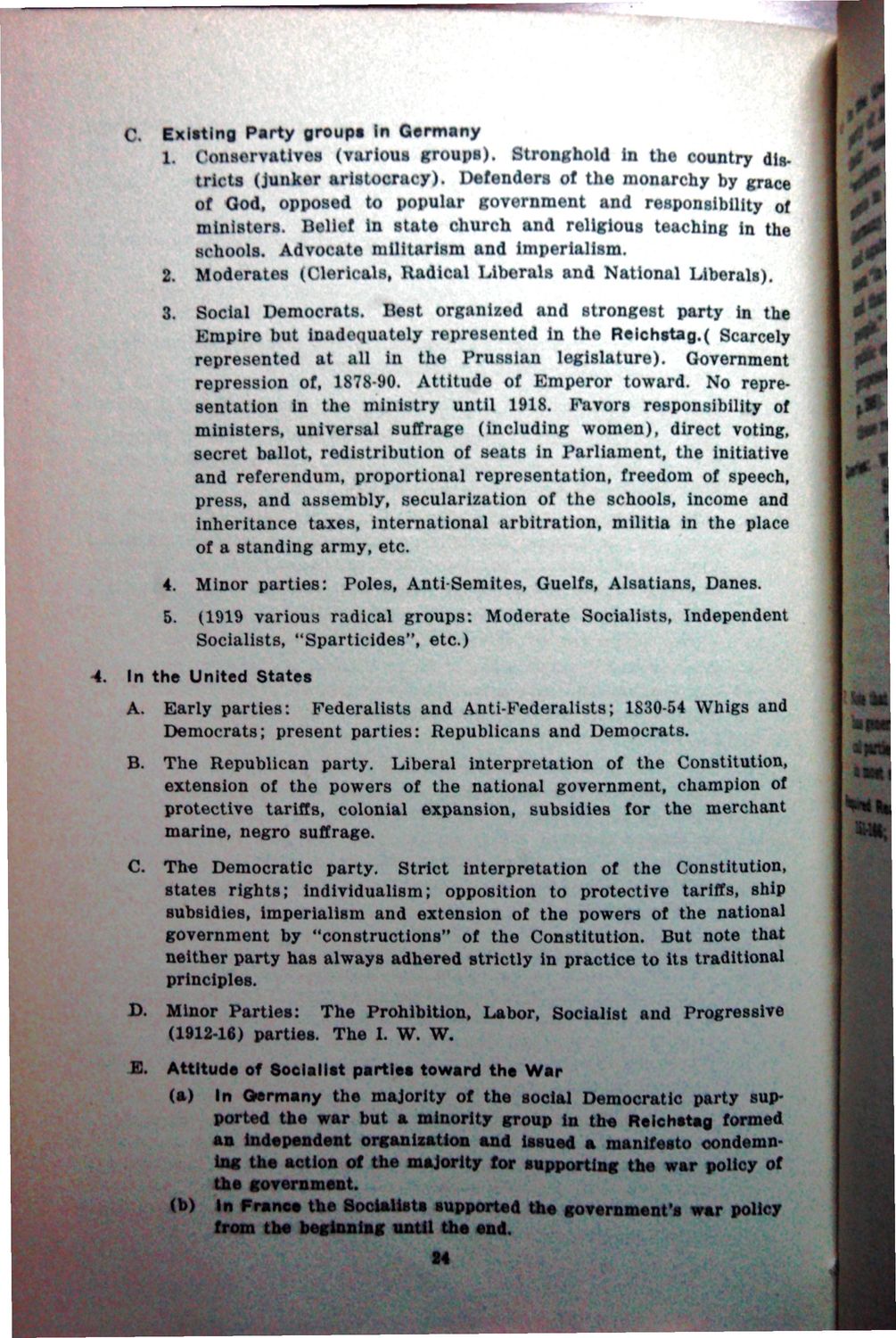| |
| |
Caption: War Publications - WWI Compilation 1923 - Article 48
This is a reduced-resolution page image for fast online browsing.

EXTRACTED TEXT FROM PAGE:
C. Existing Party groups in Germany 1. Conservatives (various groups). Stronghold in the country districts (junker aristocracy). Defenders of the monarchy by grace of God, opposed to popular government and responsibility of ministers. Belief in state church and religious teaching in the schools. Advocate militarism and imperialism. 2. Moderates (Clericals, Radical Liberals and National Liberals). 3. Social Democrats. Best organized and strongest party in the Empire but inadequately represented in the Reichstag.( Scarcely represented at all in the Prussian legislature). Government repression of, 1878-90. Attitude of Emperor toward. No representation in the ministry until 1918. Favors responsibility of ministers, universal suffrage (including women), direct voting, secret ballot, redistribution of seats in Parliament, the initiative and referendum, proportional representation, freedom of speech, press, and assembly, secularization of the schools, income and inheritance taxes, international arbitration, militia In the place of a standing army, etc. 4. Minor parties: Poles, Anti-Semites, Guelfs, Alsatians, Danes. 5. (1919 various radical groups: Moderate Socialists, Independent Socialists, "Sparticides", etc.) In the United States A. Early parties: Federalists and Anti-Federalists; 1830-54 Whigs and Democrats; present parties: Republicans and Democrats. B. The Republican party. Liberal interpretation of the Constitution, extension of the powers of the national government, champion of protective tariffs, colonial expansion, subsidies for the merchant marine, negro suffrage. C. The Democratic party. Strict interpretation of the Constitution, states rights; individualism; opposition to protective tariffs, ship subsidies, imperialism and extension of the powers of the national government by "constructions" of the Constitution. But note that neither party has always adhered strictly in practice to its traditional principles. D. Minor Parties: The Prohibition, Labor, Socialist and Progressive (1912-16) parties. The I. W. W. E. Attitude of Socialist parties toward the War (a) In Germany the majority of the social Democratic party supported the war but a minority group in the Reichstag formed an independent organization And issued a manifesto condemning the action of the majority for supporting the war policy of the government. (b) In Francs the Socialists supported the government's war policy from the beginning until the end. 24
| |